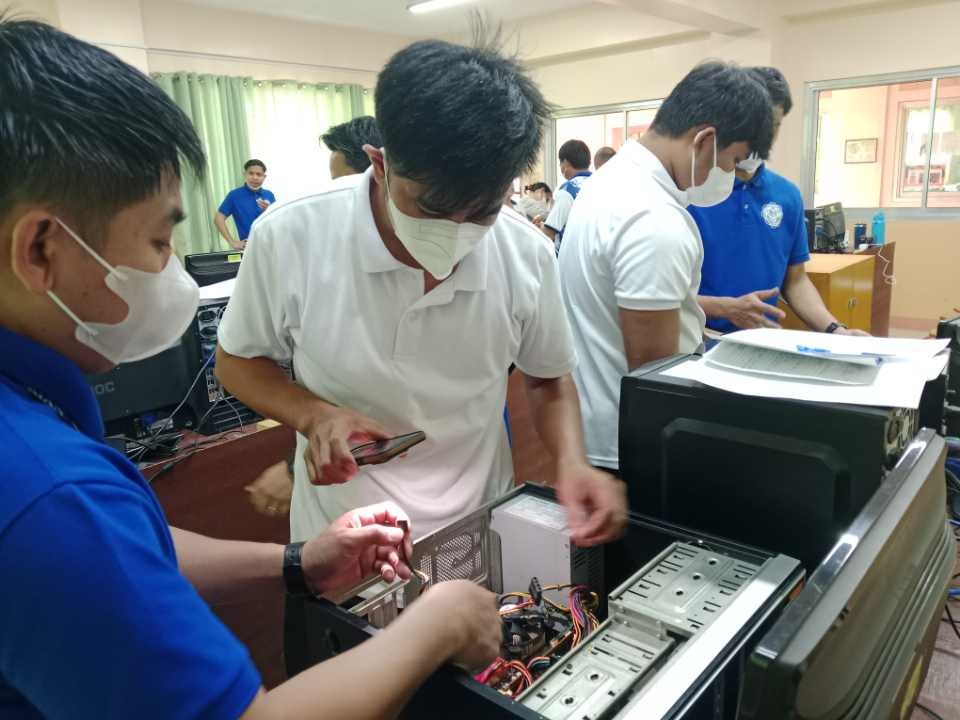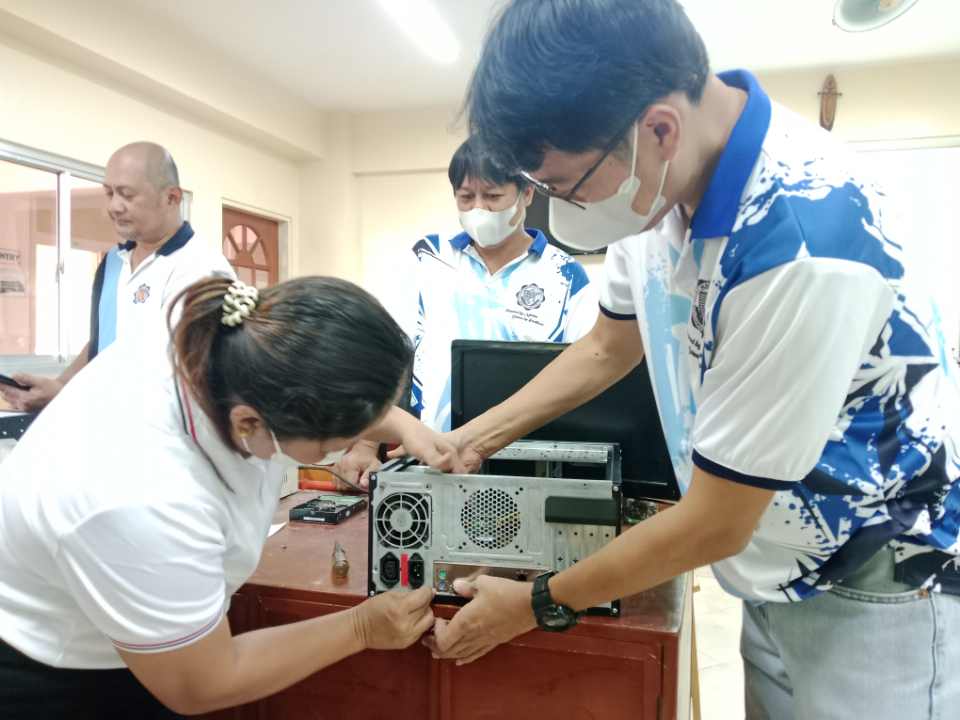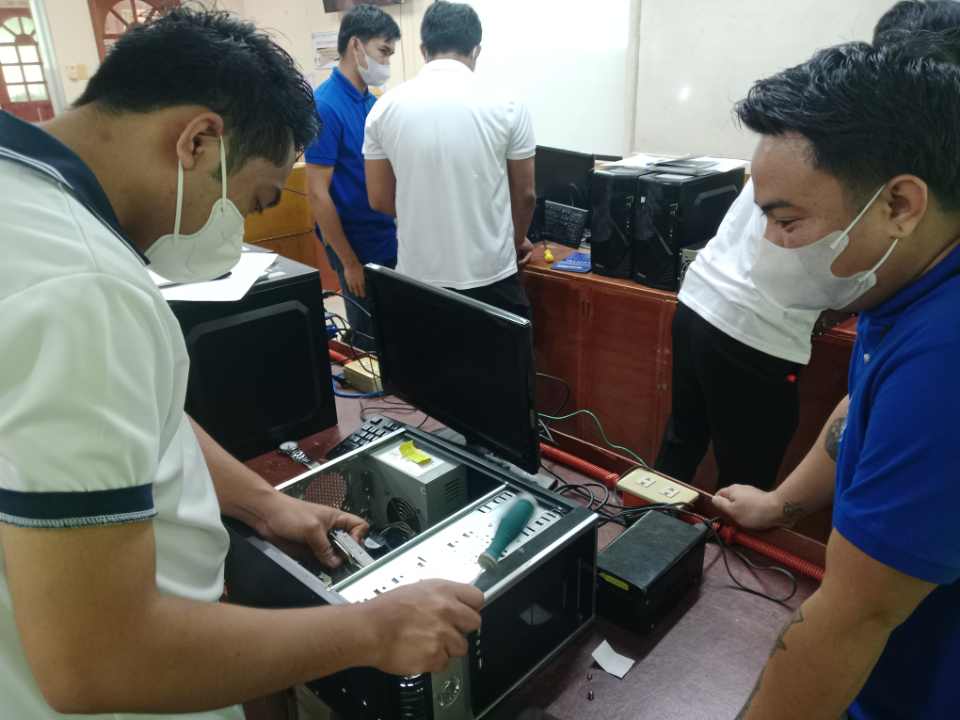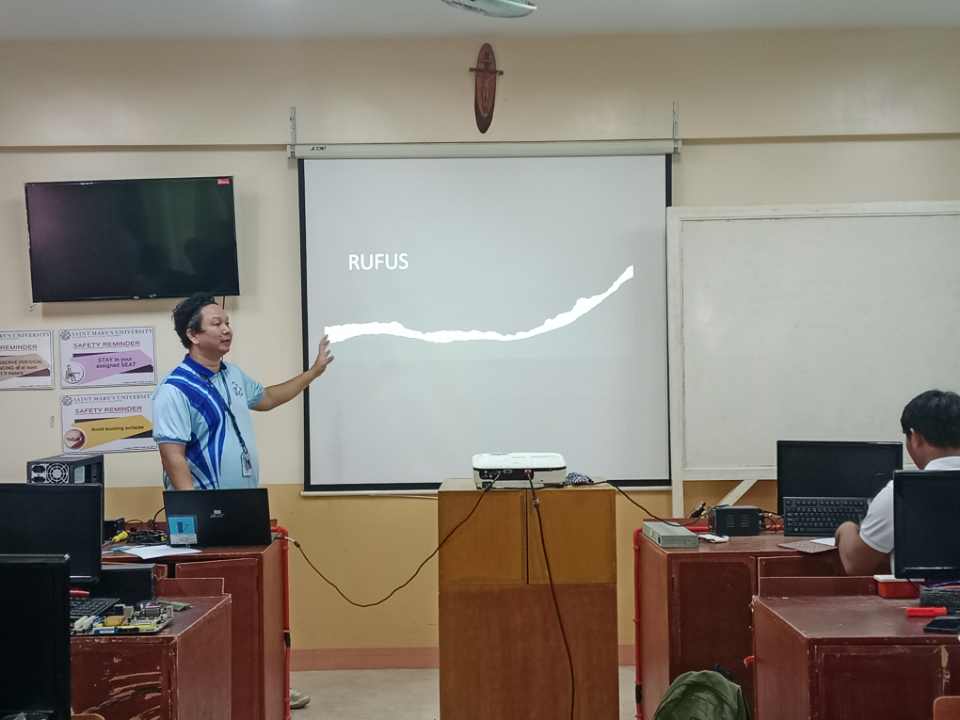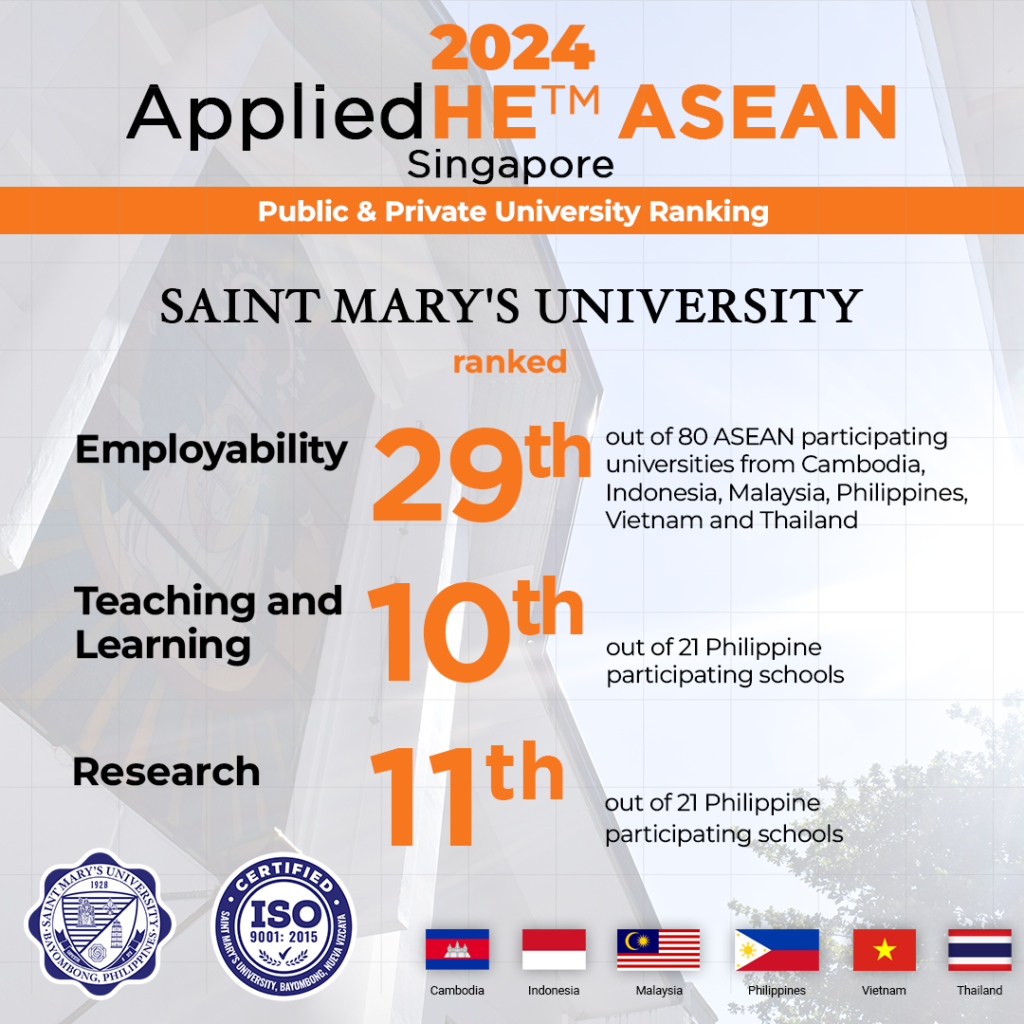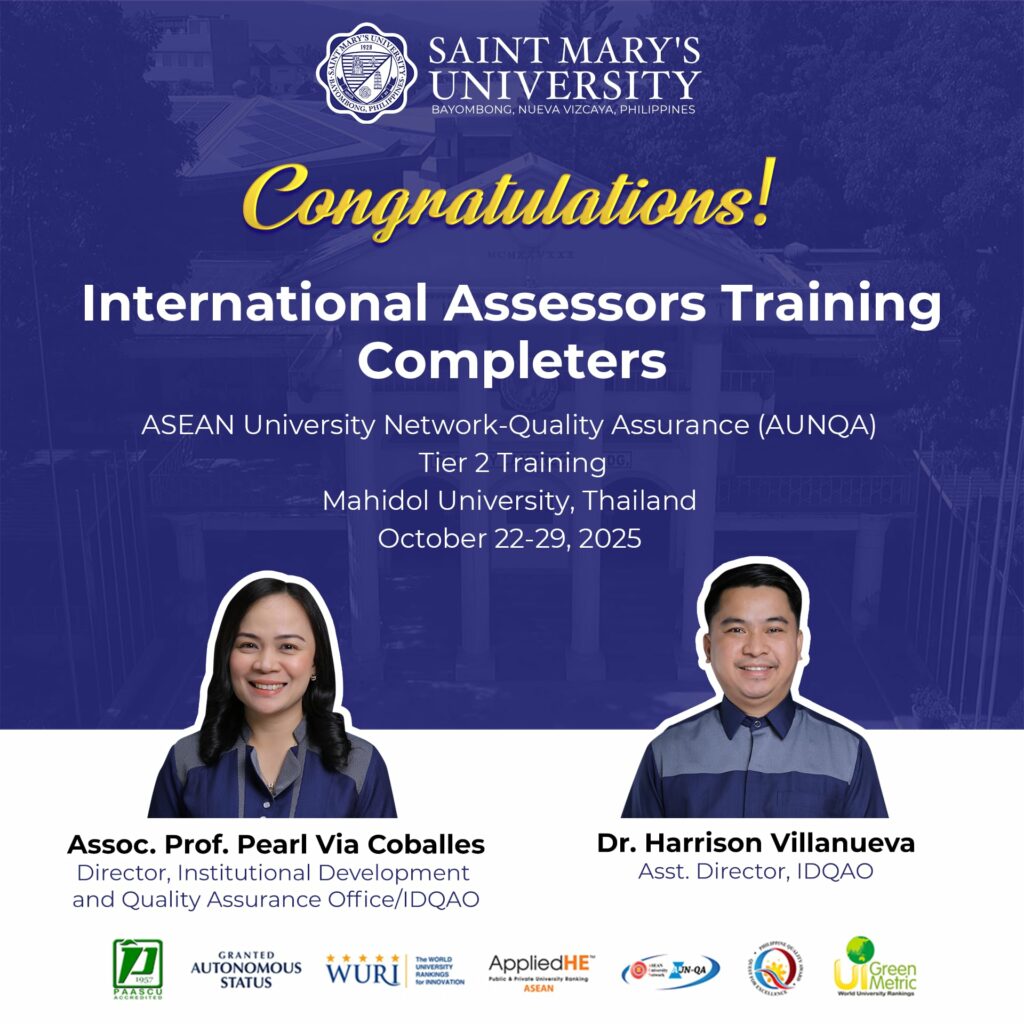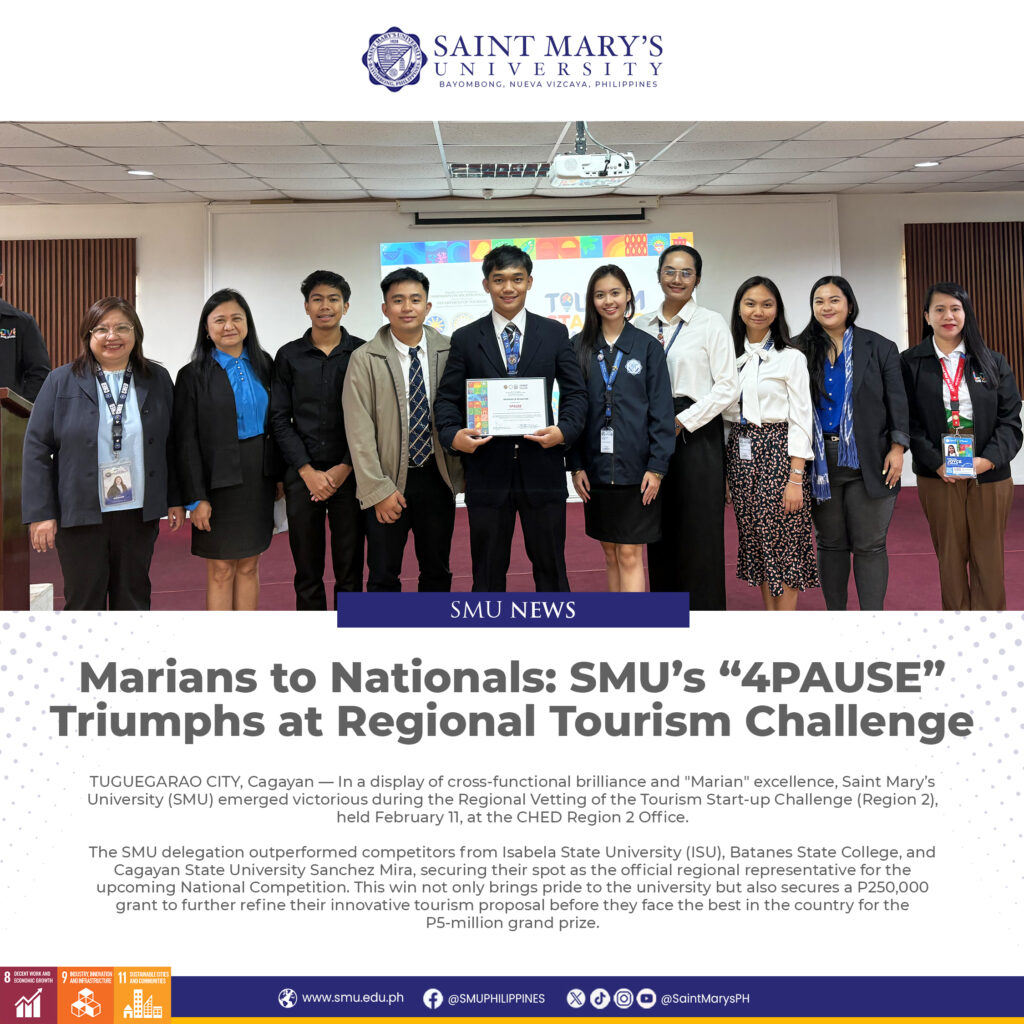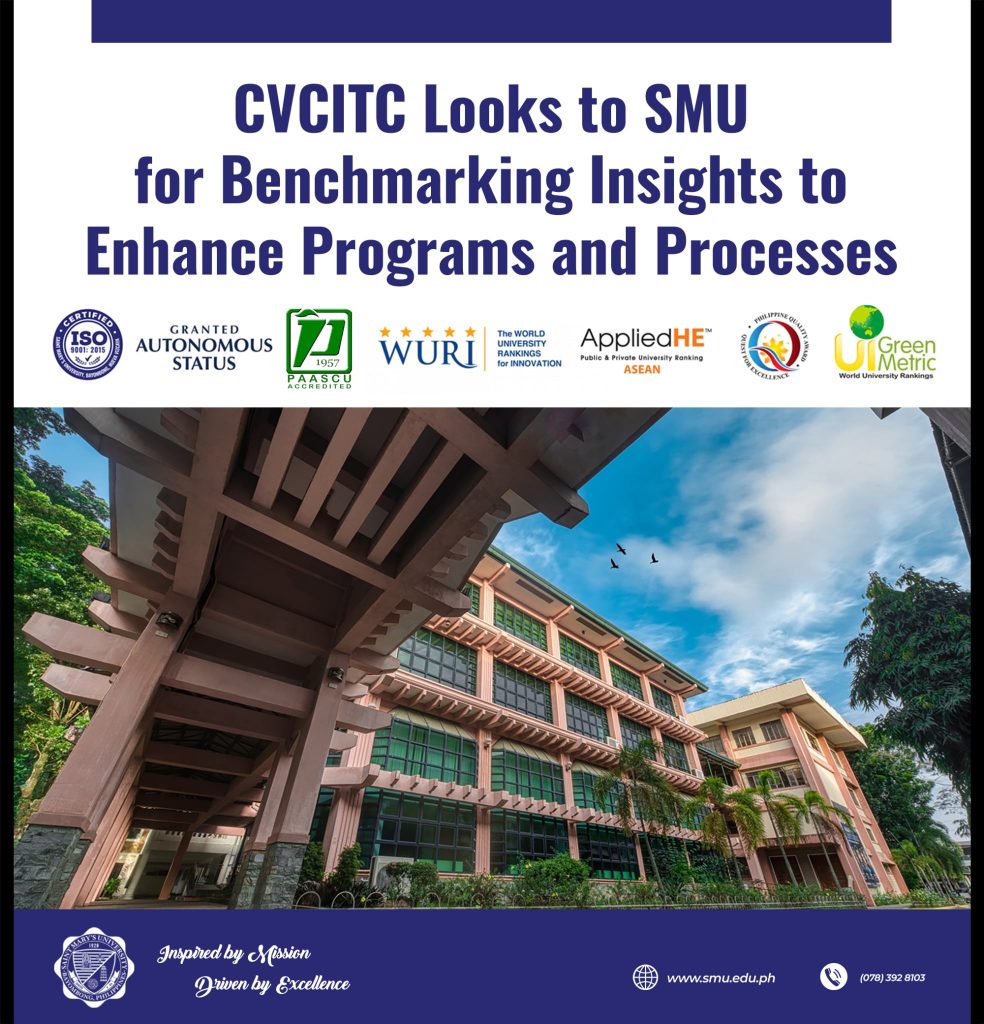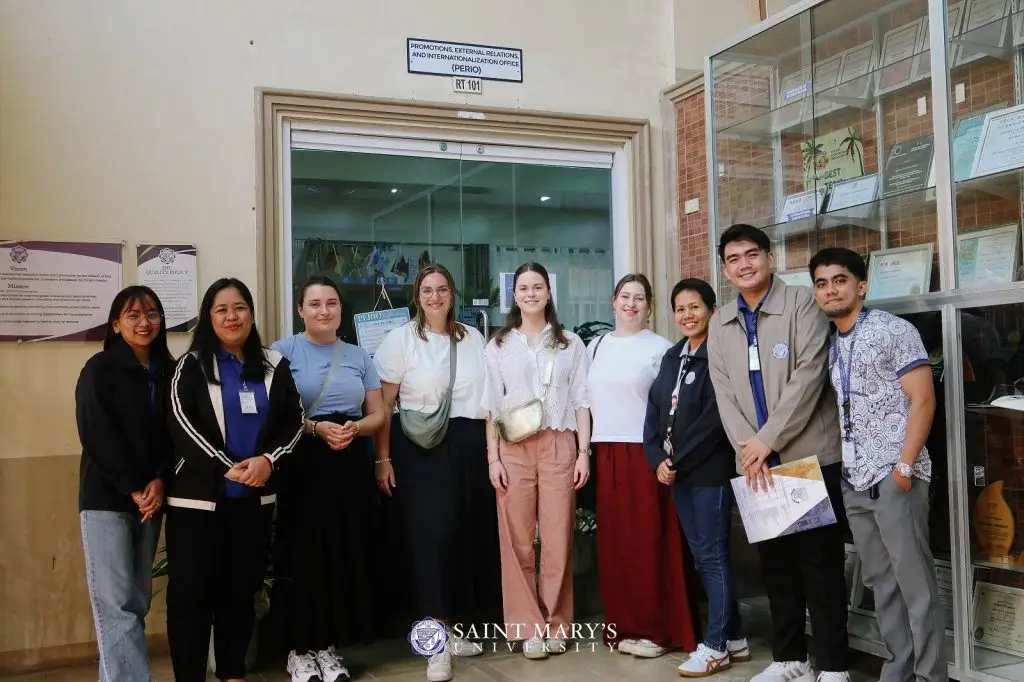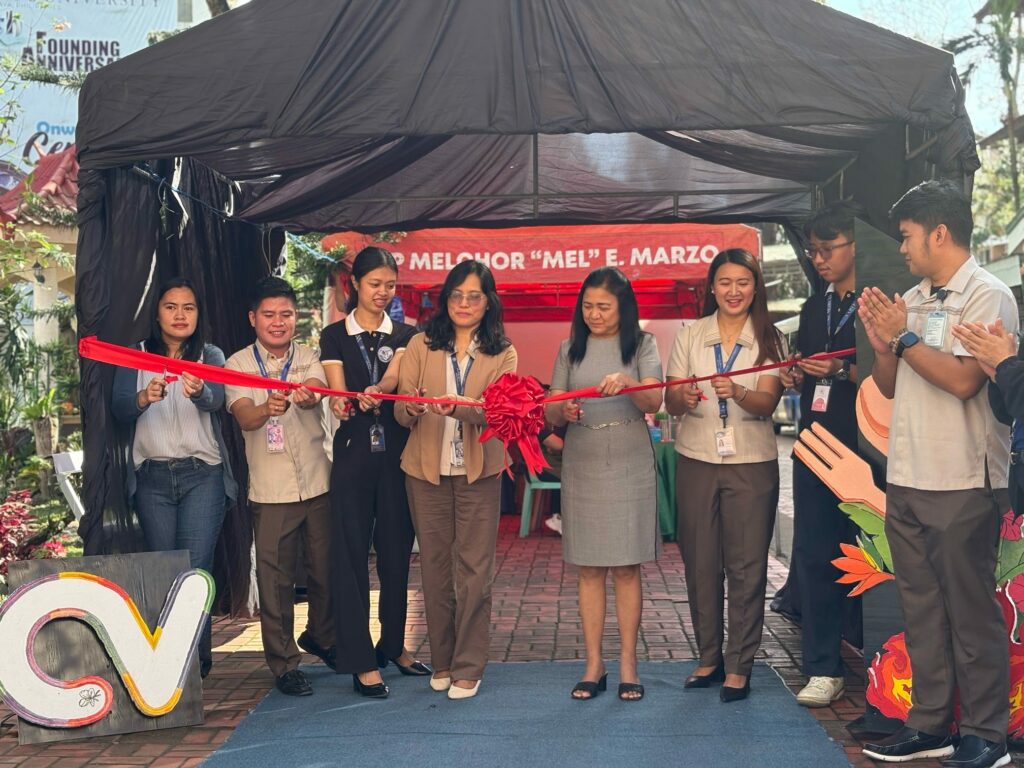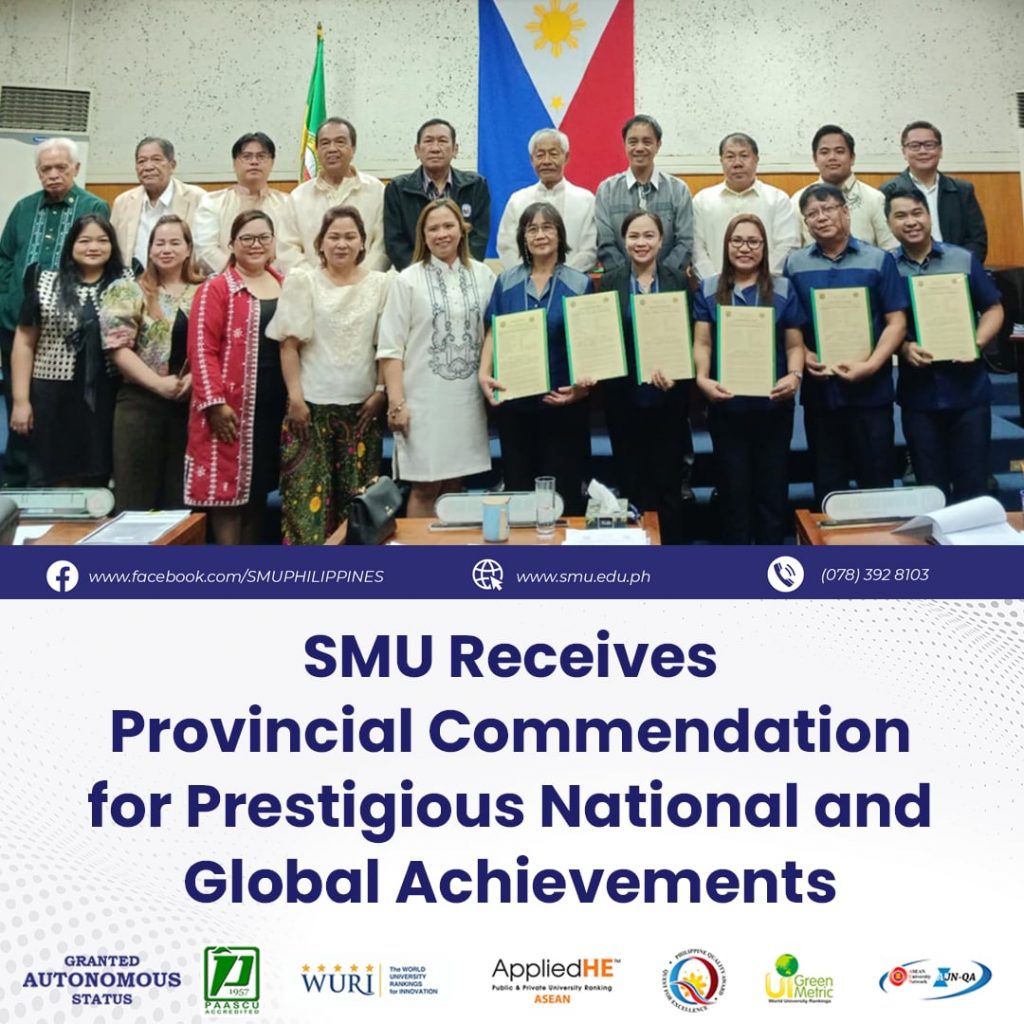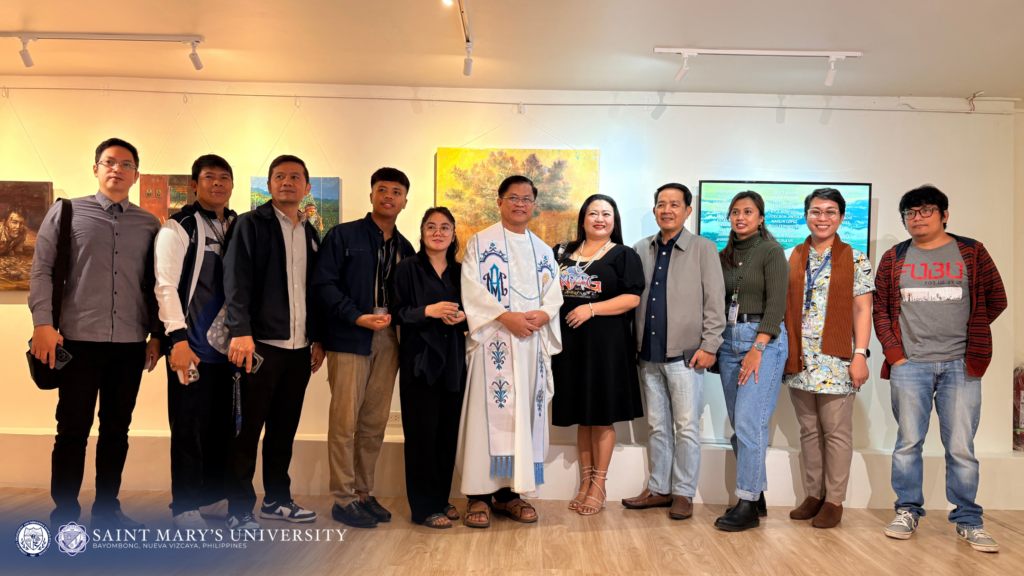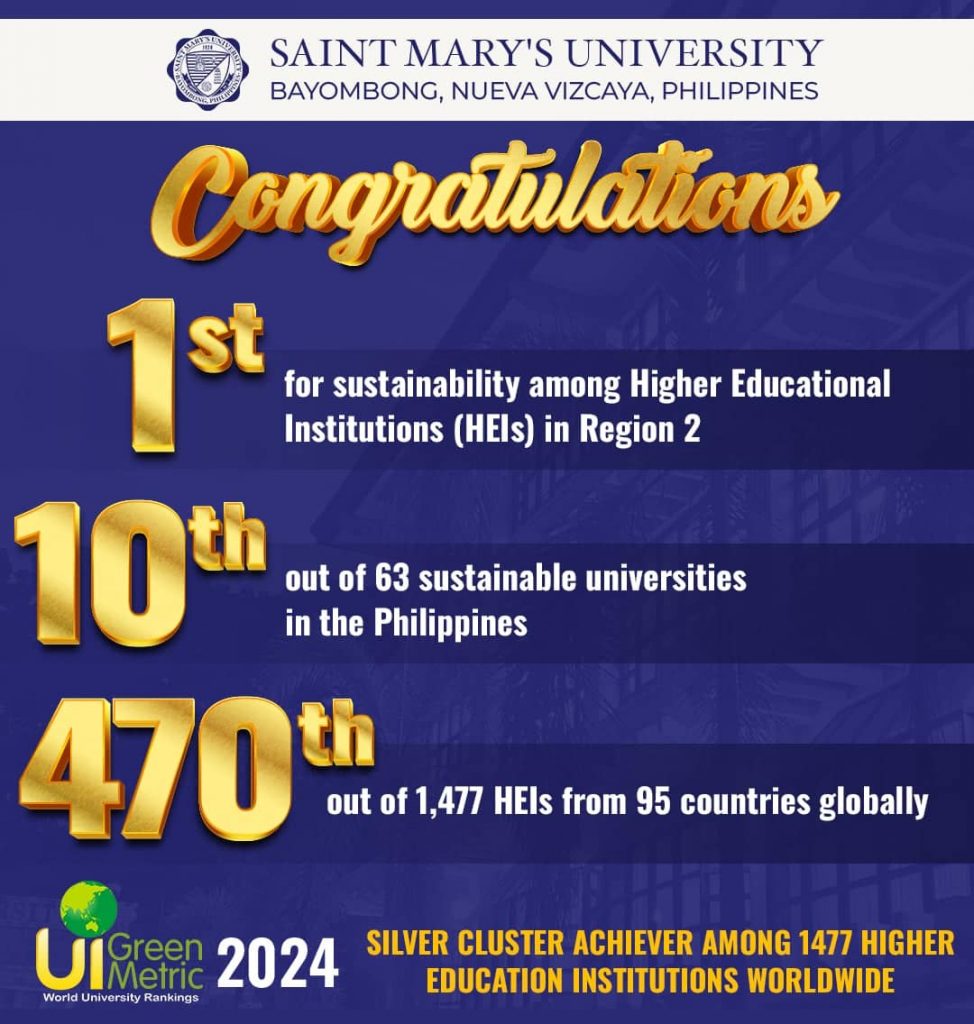Project Tech-Agtutubo: SMU Launches Computer Skills Training for Communities
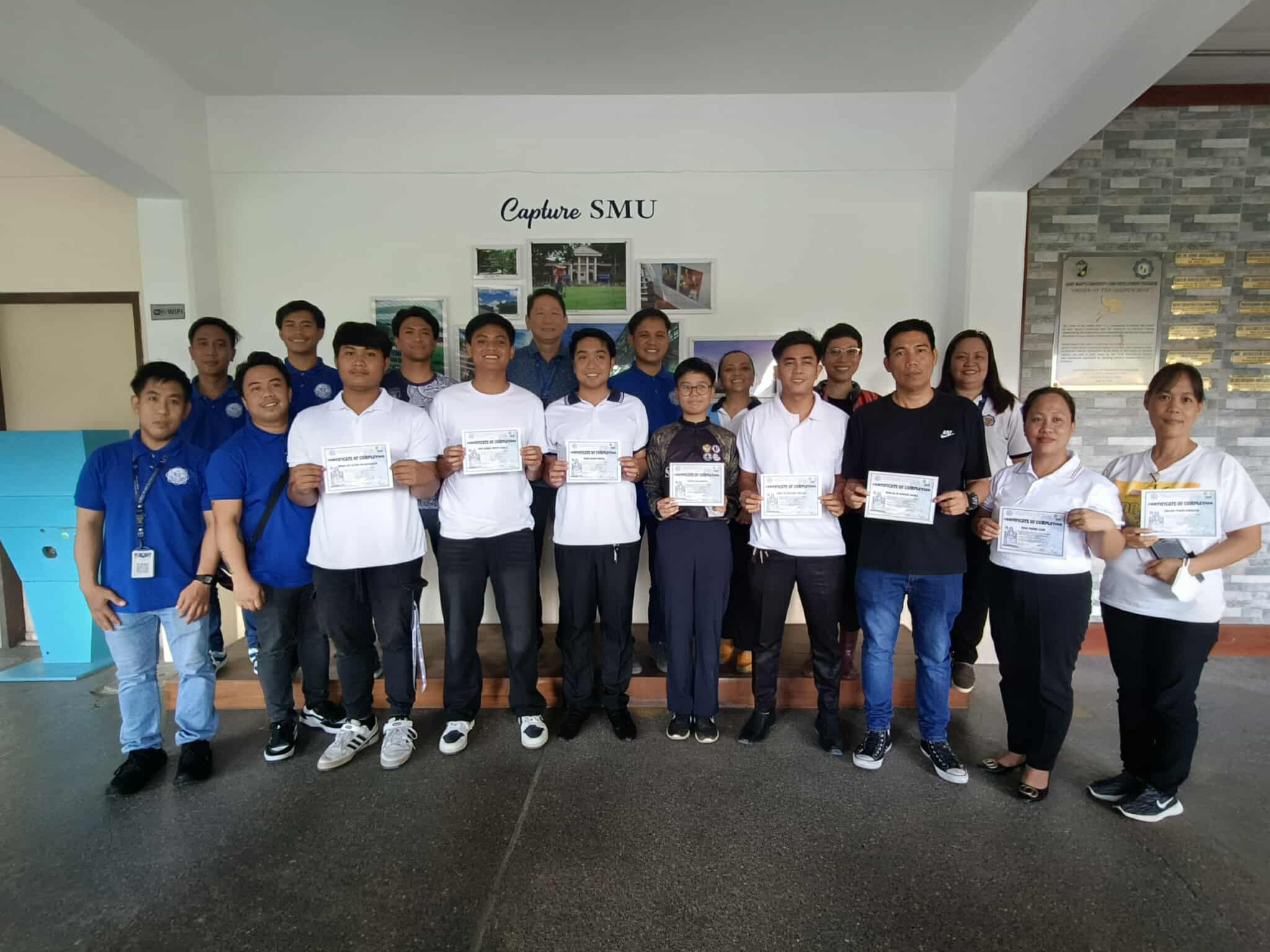
Saint Mary’s University (SMU) successfully launched the First Batch of Project Tech-Agtutubo on October 25, 2025, as a key initiative during the Indigenous Peoples and Museum Month celebration. This Community-Based Training (CBT) Program was spearheaded by the Equivalency and Technical-Vocational Assessment Office (ETVA0), led by Mrs. Gayle R. Mercado, MPA, MBA. The project was organized under the School of Accountancy and Business (SAB), headed by Dean Dr. Regina D. Ramel, CPA, in collaboration with the Community Engagement and Indigenous Peoples Studies Center (CEIPSC), directed by Dr. Christopher Allen S. Marquez, and the Center for Information and Communication Technology (CICT), directed by Mrs. Essel T. Cañaberal, with the support of Mr. Mildios Meeds Ciriaco V. Blando, Head of CETSO. The program, which partnered with the Technical Education and Skills Development Authority (TESDA) and was fully supported by Dr. Moises Alexander T. Asuncion, Vice President for Academic Affairs (VPAA), underscores the University’s dedication to transformative community engagement and skills development.
The Project Tech-Agtutubo training focused on the essential skill unit of “Install and Configure Computer Systems.” Held at Room AP 304, the curriculum covered crucial technical competencies, including assembling computer hardware, installing operating systems and application software, and conducting testing and documentation. A practical component involved performing repair and maintenance tasks, such as printer rescue, and a dedicated Electronic Waste Management Awareness Talk to promote responsible technology use. The training was expertly delivered by the team of trainers: Mr. Dennis Abosejo, Mr. Erald John A. Aguilar, Mr. Chester Duane M. Palacay, and Mr. Emerson Mark B. Rabago.
The Project Tech-Agtutubo training focused on the essential skill unit of “Install and Configure Computer Systems.” Held at Room AP 304, the curriculum covered crucial technical competencies, including assembling computer hardware, installing operating systems and application software, and conducting testing and documentation. A practical component involved performing repair and maintenance tasks, such as printer rescue, and a dedicated Electronic Waste Management Awareness Talk to promote responsible technology use. The training was expertly delivered by the team of trainers: Mr. Dennis Abosejo, Mr. Erald John A. Aguilar, Mr. Chester Duane M. Palacay, and Mr. Emerson Mark B. Rabago.
Participants in the Project Tech-Agtutubo training came from various communities identified through coordination with the Department of Social Welfare and Development (DSWD). These communities included Barangay Busilac, Don Mariano Marcos, and La Torre North in Bayombong; Barangay Bangaan and Concepcion in Solano; Barangay Pinayag in Kayapa; Barangay Ocapon in Villaverde; and Barangay Runruno in Quezon. The participants were noted for their strong motivation and readiness to pursue technical-vocational education to improve their livelihood and quality of life.
The program successfully equipped participants with practical, hands-on experience in Computer Hardware Servicing, developing essential technical skills, confidence, and self-sufficiency. Upon completion, participants were awarded a Certificate of Completion from SMU and a Certificate of Training from TESDA, validating their newly acquired competencies for employability, livelihood ventures, or advanced technical courses. This initiative reinforces SMU’s mission to uplift Indigenous Peoples and marginalized sectors, aligning with the United Nations Sustainable Development Goals (SDGs) through inclusive and transformative education (SDG 4: Quality Education and SDG 8: Decent Work and Economic Growth. The program directly addresses SDG 4 by providing inclusive and equitable quality technical and vocational training (specifically in computer skills) to marginalized sectors, thus improving their access to learning and skills. This directly enables SDG 8 by equipping participants with employable and entrepreneurial skills that lead to decent work and productive employment, thereby supporting local economic growth and self-sufficiency within Indigenous Peoples and underserved communities.).
SDG 4: Quality Education and SDG 8: Decent Work and Economic Growth
Written by: Aryan L. Yuzon, Promotions Coordinator, School of Accountancy and Business
Photo by: Project Tech-Agtutubo participants and ETVAO

